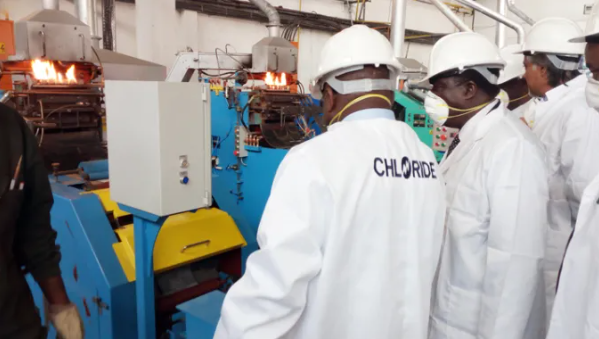By ETimes
ART Holdings Limited has commended the relative stability witnessed in the second half of 2023, saying it spurred its exports and volume uptake by the local informal sector.
Between May and June this year, the Zimbabwe dollar suffered from a spate of depreciation as the parallel market exchange rate plummeted significantly.
At its lowest, year-on-year blended inflation spiralled to a high of 175,8 percent in June while month-on-month closed the month at 74,5 percent.
This prompted the government to intervene and tame the out-of-hand situation, leading to a tight monetary policy.
In May 2023, the treasury introduced several measures to promote the use of domestic currency in the economy, reacting to the freefalling exchange rate and rising inflation.
The measures were also aimed at moderating the money supply while pushing for the liberalisation of the foreign exchange market.
Just like many other enterprises, the diversified manufacturing group benefited from the government interventions and a moderately stable macro economy that ensued.
In the statement accompanying the group’s full-year results to September 2023, Art Holdings Limited chairman Dr Thomas Wushe said a stable second half had improved the performance in some sections of its business.
Adding that the extension of the multicurrency regime would instil confidence in the general economy.
“The relative stability of the exchange rate in the second half of the year resulted in improved exports and informal sector volume uptake. Demand in the formal markets was depressed whilst rising energy prices and power shortages heavily impacted the manufacturing sector.
“The market has welcomed the extension of the multi-currency regime for a further five years,” Dr Wushe said.
However, according to Art Holdings improved output in the second half of 2023 could not upend the impact of power-induced product shortages experienced in the first half of 2023.
According to the group, the economic environment continued to be challenging and fickle, as global economies slowed, regional exchange rates fluctuated, and notable depreciation of the local currency.
“Demand in the formal markets was depressed whilst rising energy prices and power shortages heavily impacted the manufacturing sector. Price movements could not fully match inflation as competition from imported finished products increased,” he added.
Operationally, despite the said improvement in the second quarter exports, overall export earnings decreased by eight percent.
The group’s revenue paced 81 percent to $125 billion in inflation-adjusted terms compared to the prior year, which was attributable to the regular price movements in response to inflation and rapid local currency depreciation.
Art Holdings’ margins improved by nine percentage points as the recovery of cost increases from customers was supported by improved efficiencies and cost containment measures, while operating profit increased by 135 percent.
The paper division recorded a moderate growth of four percent as it sold 48,912,000 units, an elevated performance compared to the prior year as restructuring continued in this business segment.
Batteries division saw a three percent decline in performance albeit maintaining a dominant position in the local market.
The core energy storage business (batteries) sold out 343 161 units as persistent power outages continue creating the need.
Overall, Art Holdings volumes decreased by five percent – Harare



